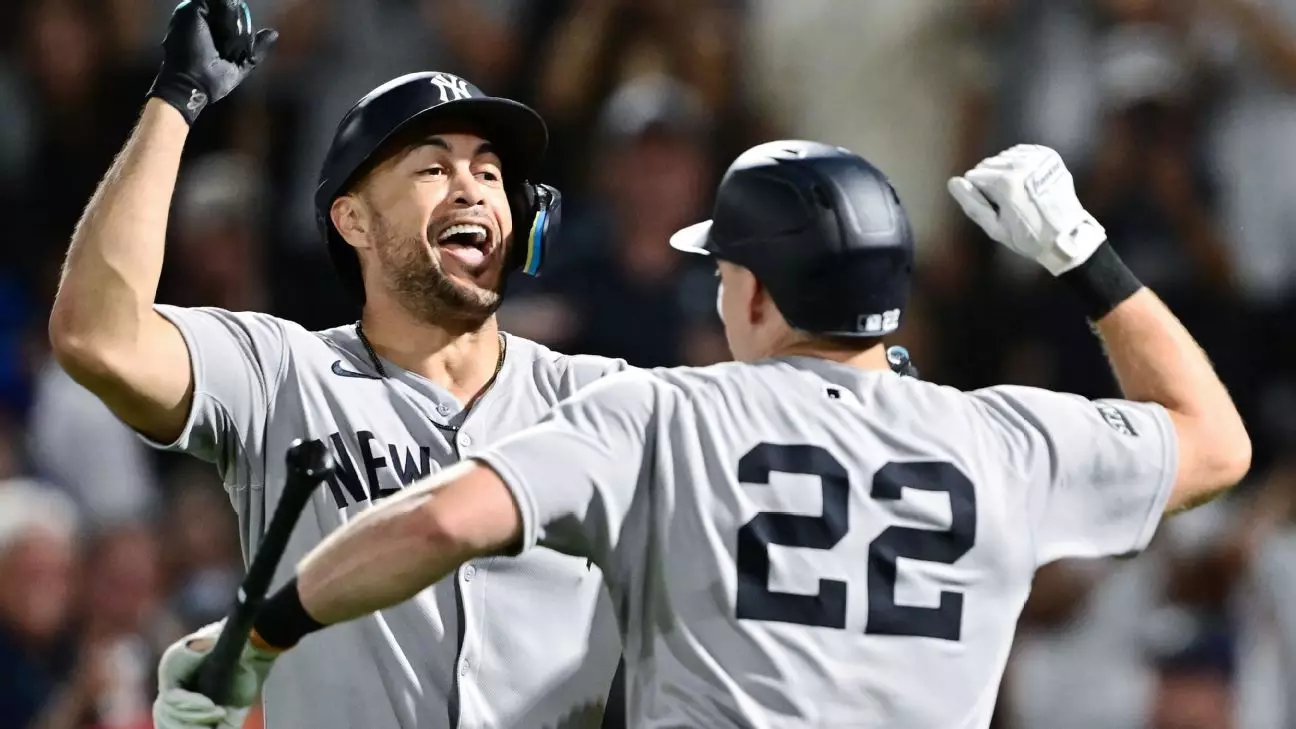In an electrifying display of offensive mastery, the New York Yankees delivered a game that will be remembered for its sheer dominance and record-breaking achievement. With nine home runs in a single contest, the Yankees not only showcased their explosive power but also set a new milestone in Major League Baseball history. This offensive onslaught was more than just a testament to individual talent; it was a stark reminder of the Yankees’ ability to elevate their game when it matters most. Their performance ignited a debate about whether other teams are equipped to withstand such relentless power, or if the Yankees are rewriting the very standards of offensive excellence.
Such a prolific display raises questions about the volatility of pitching strategies across the league. Shane Baz’s struggles—giving up five homers in just three innings—highlight a concerning vulnerability among teams that relied heavily on their pitchers to succeed. The Yankees, meanwhile, demonstrated not just skill but a strategic patience and ability to capitalize on mistakes, indicating a level of offensive sophistication that most teams currently lack. Their nine-homer feat, matching just a handful of times in MLB history, is a stark warning that the Yankees’ offense is in a league of its own, capable of dismantling opposing pitching with alarming consistency.
Rival Teams Must Confront a Stark Reality: Offensive Power Has Arrived
The Yankees’ offensive explosion is not just a fluke or a momentary lapse in pitching quality. It exposes a broader league-wide issue—many teams are simply unprepared for this level of offensive firepower. Smaller-market teams, or those with less investment in offensive development, appear overwhelmed by the Yankees’ ability to rack up multiple home runs in a single game. This creates a growing disparity that could threaten the competitive balance of the sport, favoring historically dominant franchises over rebuilding or mid-tier teams.
From a strategic perspective, teams need to reevaluate their pitching and defensive philosophies. The Yankees’ ability to hit back-to-back-to-back homers within the first inning sent a clear message: early-game vulnerability can turn into a demoralizing defeat if not addressed. The game showed that good pitching alone is no longer sufficient—offensive resilience and adaptability are equally vital. An expanding power gap might lead to a shift in how teams approach roster construction and game management, with an emphasis on offensive firepower as a primary weapon.
Behind the Numbers: A Wake-up Call for Baseball’s Future
The New York Yankees are rewriting not just historical records but the narrative of offensive potential in baseball. Their achievement of two nine-homer games in a single season signifies a fundamental shift in the game’s dynamics. The sport’s evolution toward power hitting signals a more aggressive, high-reward style that could leave traditional pitching-first strategies scrambling for relevance. Yet, this also raises an uncomfortable question for the sport: are current pitching development programs equipped to combat this offensive wave?
Furthermore, the Yankees’ ability to produce such remarkable offensive outputs amid rain delays and tough away-game conditions highlights their resilience and focus. Their confidence in taking advantage of opponent mistakes and capitalizing on opportunities demonstrates a mindset that other teams might aspire to but seldom emulate effectively. This relentless offensive assault might be the new norm, forcing MLB teams to reconsider their approach to player development, scouting, and game tactics.
Rival teams and league officials should recognize this moment as a potential turning point. If offensive power continues to escalate, the sport risks losing its balance and strategic depth. It is crucial that teams adapt swiftly—either by bolstering their pitching staffs or by innovating defensively—if they wish to stay competitive in an era where the Yankees are seemingly rewriting the offensive blueprint. Only time will tell whether this surge signifies a fleeting peak or a permanent shift in baseball’s power hierarchy.


Leave a Reply